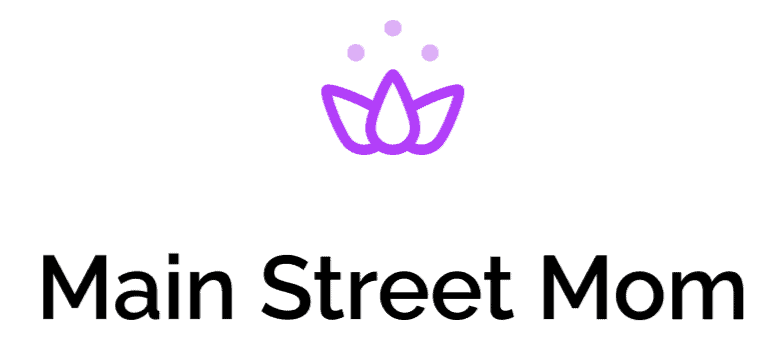I get it, mama. You overthink every little thing your baby does differently. You know she’s constantly growing and changing, but you can’t help but worry about every difference in her behavior. I assume your baby sucking her bottom lip is one of them, right?
If you’re a first-time mom, I just want to make it clear that your baby will do a lot of things that won’t make sense. That’s completely normal, and that’s why you’re here, trying to learn more! You’re worried about your baby sucking her lip, but I’m here to tell you that it’s completely normal and quite common!
Still, it’s a good thing you’re trying to learn the reasons why she might be doing it. Understanding your baby’s development is crucial in providing her with everything she might need. However, if you notice she’s excessively sucking her bottom lip, it’s always a good idea to talk to your doctor.
After all, no matter how normal changes are at this stage of your baby’s development, it’s always good not to ignore the differences that you notice. Sometimes, they can be a sign of an underlying issue that you might need to pay attention to.
But, for now, let’s stick to the reasons behind your baby sucking her bottom lip. We’ll find out why it happens, what are some possible consequences if done excessively, and what you can do to help.
Why is my baby sucking her bottom lip?
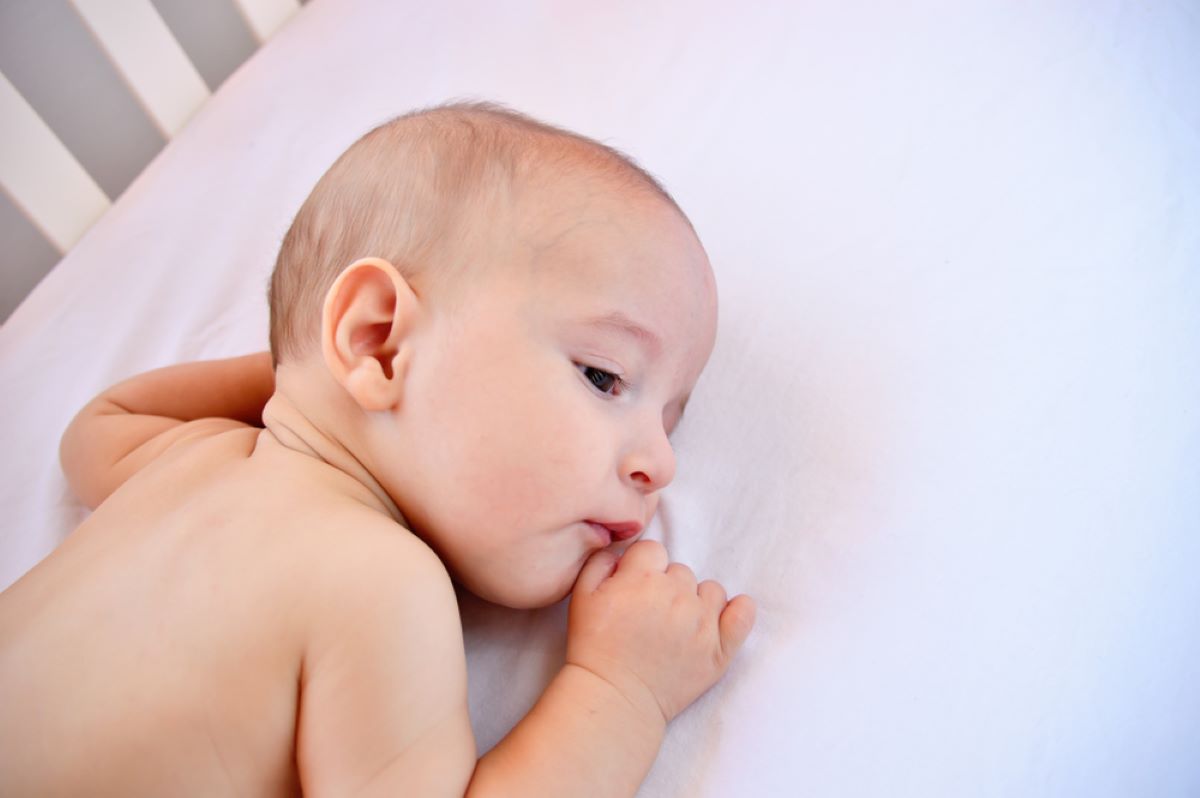
It’s not uncommon to see a baby sucking on her bottom lip, and there are a variety of reasons why she might be doing so. In fact, it’s often a normal part of their development and not a cause for concern. So why do babies engage in this cute behavior? Let’s take a closer look at some of the common reasons.
1. Teething
Your baby was just a newborn, but you were probably already dreading the time when she starts teething. You have heard so many stories about this stage of a baby’s development, so it is no surprise that you are worried about its consequences and how it’s going to affect your bub.
Well, I think that time is finally here, mama. No need to fret! Ignore all those scary tales you may have heard about your baby’s teething phase. Every little one is unique and their experience with teething will be too. Some mothers tend to embellish, so don’t let their stories intimidate you. You know your baby best.
So, if you notice your baby sucking on her bottom lip, it could be an early indication of teething. Keep an eye out for other signs like excessive drooling, sore gums, and rosy cheeks. As your little one’s gums begin to feel itchy, she may turn to sucking her lip as a way to alleviate the discomfort.
Although teething usually happens when babies are around 6 to 10 months old, that’s not set in stone. Some babies can begin teething a lot earlier. Every baby is different, so it’s best to consult with a professional to get a clearer understanding of what’s happening.
2. It’s time for her next feeding

When was the last time your little one ate? A baby sucking on her bottom lip could be a sign she’s hungry. This is common for babies who are still breastfeeding. Because not all babies cry when it’s time to eat, it’s a good idea to pay attention to her body language, too.
Some babies might mimic the action of sucking on a bottle or a nipple once they’re feeling hungry. In case your little one is using her fingers, lip, or hands instead of a nipple, it might be time to feed her.
But you’ve just finished feeding your baby?! Well, it’s not uncommon for them to exhibit signs of hunger soon after being fed.
This could happen because your little one is experiencing a growth spurt. During this time, your bub may have an increased appetite. If this goes on for a longer period, it’s best to consult a pediatrician.
On the other hand, if you’re a mom to an older baby, she’s probably already at a stage where she’s trying to copy pretty much everything you do. In this case, she might suck on her lip when she notices you eating. She might want to try your food because she likes the smell of it, or she’s simply mimicking the way you eat.
In case your little one is older than 6 months, this is a good sign she might be ready to move to solid foods. Before you give her anything new to try, talk to your pediatrician about all the options your baby can eat according to her age.
3. She’s self-soothing
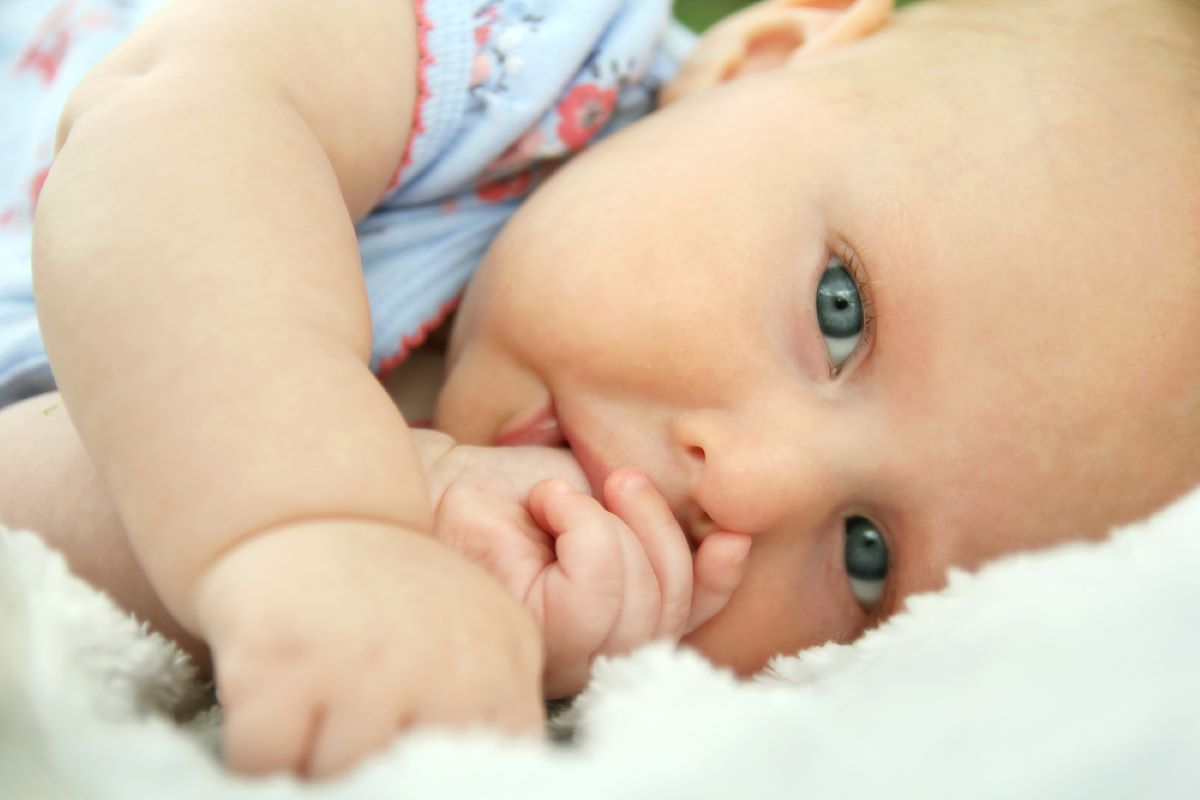
As your baby grows older, she’ll discover new ways to soothe herself. You don’t have to teach her how to do it, these things happen instinctively. It’s a wonderful experience getting to see your baby discover new things and exhibit new behaviors based purely on her instincts.
You probably don’t know it, but there’s a high chance your baby already sucked on her thumb even before she was born! How adorable is that? She’s all grown now, though, so her arms might be a bit out of reach. That’s when sucking on her bottom lip becomes her new go-to.
Some other ways your baby might self-soothe include:
- The need for her favorite blankie and toy in order to fall asleep
- Sucking on her thumb
- Rubbing her face or any other part of her body
- Rocking back and forth
- Pulling her hair
Don’t worry. Despite being strange at first, these things are completely normal and common. Your baby unlocked a new level in her development: she now knows how to calm herself down! Most babies grow out of these habits, and there’s a high chance you’ll miss seeing her sucking on her thumb at bedtime.
4. She’s stressed, anxious, or overstimulated
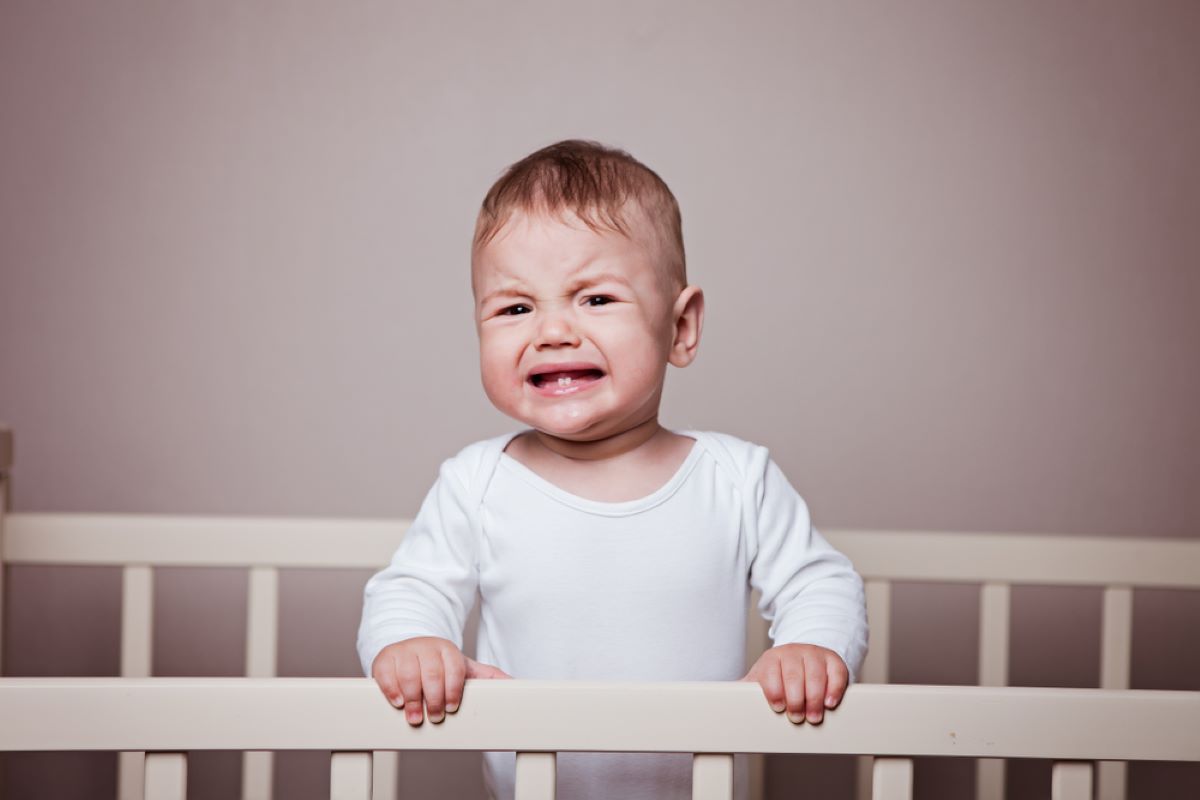
There’s hardly anything more heartbreaking than thinking about your bub being nervous or anxious. Unfortunately, a baby sucking her bottom lip can be one of the many signs of stress.
You might notice this type of behavior when there are a lot of people around her. I mean, we can’t blame them for wanting to hold your adorable bub, how could anyone resist her? However, passing her around the room from person to person can overstimulate your little one, and she might begin to miss you, too.
Naturally, these things stress out your baby and make her feel anxious, so she turns to any self-soothing method she knows. More often than not, that’s lip-sucking. Here are some signs that your bub might be stressed out:
- Excessive crying and squirming
- Hiccups
- Pushing people away with her arms and legs
- Refusing to eat
- Changes in her sleeping schedule
- Body movements that are not common for her
Any of these signs should be enough for you to get your baby from many hands that are holding her, and take her somewhere quiet. Massage her, hold her close, or simply talk to her. All of these things might help your little one calm down.
5. Sensory development
Babies are amazing little learners. As she grows, your little one will begin to explore and understand not only the world around her but her body, as well. You’ll witness your child’s journey as she learns how to move her arms and legs, and discovers new sensations, sights, and sounds.
Your baby sucking her bottom lip can mean that she’s simply discovered how this movement and action feel. In fact, there’s a high chance she’s just discovered she has a tongue and lips! This is a completely normal part of her development, so don’t stress about it.
Consequences of excessive lip-sucking
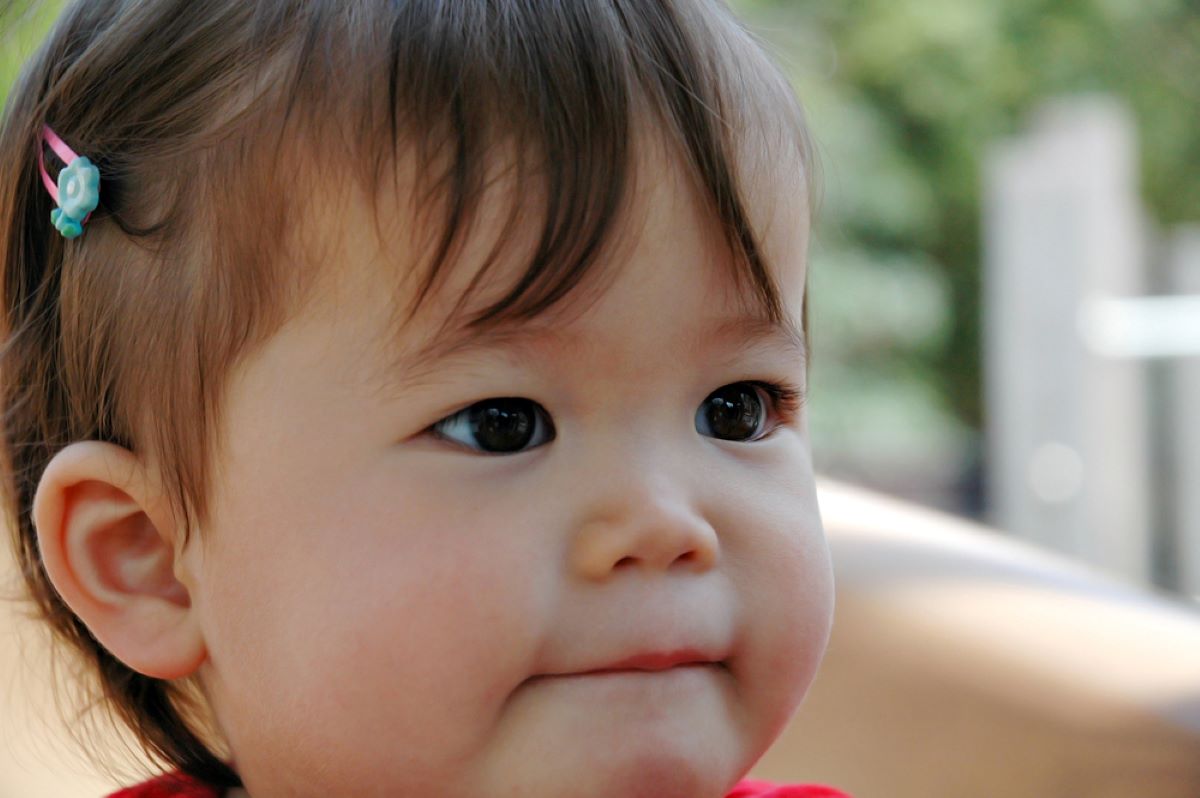
Yes, lip-sucking is a completely normal part of your bub’s development. However, if she does it excessively, it could have some negative effects. For instance, as her teeth begin to emerge, continuing to suck on her lip could potentially result in an overbite.
If this happens, her top teeth might grow over her bottom ones. When she’s older, she might find this particularly annoying, as it could take years to fix this issue. On top of that, she might have difficulties talking properly, as she’s used to talking around her lip.
As a result, these babies don’t learn how to pronounce words and letters the right way. Correcting this issue might take a number of visits to a speech therapist.
If you notice that your child is sucking her bottom lip, make sure to observe this behavior and track when and how often it happens. She should grow out of it pretty quickly but if she’s older than 12 months and still keeps doing it, it’s important to talk to your pediatrician about it.
How to stop your baby from sucking her lip?
There’s no reason for you to stop your baby from sucking her bottom lip, as it’s a normal phase of her getting to know her body. However, using a pacifier might reduce this behavior and its possible effects. Instead of her lip, she’ll suck on her dummy instead.
But, you’re already working on minimizing her lip-sucking by learning more about it. Good job! If it’s because she’s hungry, now you’ll know when it’s time to feed her. In case it’s because she’s anxious, you’ll know when to take her somewhere more peaceful. You’ll be just fine, momma!
